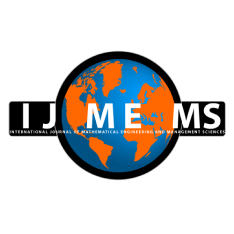Viktor Koval
Department of Business and Tourism Management, Izmail State University of Humanities, 68601, Izmail, Ukraine.
Alla Shapovalova
Department of Philosophy and History, V.I. Vernadsky Taurida National University, 01042, Kyiv, Ukraine.
Tatyana Fedotova
Department of Economics and Tourism, Donetsk National University of Economics and Trade, named after Mykhailo Tugan-Baranovsky, Kryvyi Rih, Ukraine.
Olha Soloviova
Department of Business and Tourism Management, Institute of Social and Economic Transformation, 02000, Kyiv, Ukraine.
Olena Novak
Department of World Economy, State University of Trade and Economics, Kyiv, Ukraine.
Sviatoslav Khimich
Educational and Scientific Institute of Management, Economics and Business, Interregional Academy of Personnel Management, Kyiv, Ukraine.
DOI https://doi.org/10.33889/IJMEMS.2024.9.1.003
Abstract
The study examines the development policy of the circular economy using the example of European Union countries based on the results of their circularity indicators. The respective countries fall into the “shift” country profile according to the distribution from the Global Circularity Gap, being consumers of the majority of global materials and generating 43% of emissions. Through the grouping of EU countries, it was found that high-circularity indicators do not necessarily determine a country's level of environmental friendliness. It has been identified that countries with high resource productivity levels (ranging from 5.8811 to 2.1397%), provided they have high and medium levels of product processing and investment in circular economy development, do not always have a positive impact on the environment. The corresponding research has led to the conclusion that the significant negative impact of the overproduction of goods and excessive resource consumption in European countries, which necessitates appropriate changes in societal activities. There is a need to adjust the policy directions of EU countries to stimulate their sustainable development in a closed-loop economy context, taking into account the specific characteristics and opportunities of each country, which will ensure a more effective adaptation to the implemented innovations. The results of this research can be applied to shaping the circular economy development policy and developing proposals for directions in societal development based on raising awareness about the consequences of interactions with the environment.
Keywords- Circular economy, Circularity indicators, Natural resources management, Societal awareness.
Citation
Koval, V., Shapovalova, A., Fedotova, T., Soloviova, O., Novak, O., & Khimich, S. (2024). European Circular Economy Policy-Making in Sustainability and Resource Management Development. International Journal of Mathematical, Engineering and Management Sciences, 9(1), 49-70. https://doi.org/10.33889/IJMEMS.2024.9.1.003.



